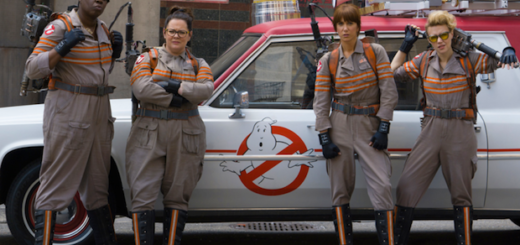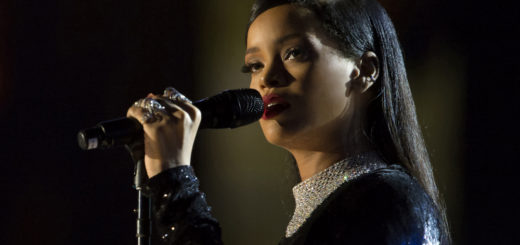Beyond the Bechdel Test: ‘Trainwreck’
 Credit: Universal Pictures
Credit: Universal Pictures
By JORDAN ECARMA
This column is what happens when you’re a conservative feminist who loves movies. The Bechdel test is pretty basic: Does this movie have a scene where two women with names talk about something other than a guy? The point of the test is not “movies that pass this are feminist”—it’s “this is the absolute base point of whether or not women are their own people in this movie.” I attempt to go a little further each week with a deeper analysis.
The film: Comedian Amy Schumer and director Judd Apatow invested a “few years” into this project, turning out a romantic comedy that is flawed but fun, acerbic yet sweet—and a delightful step forward for women in film.
The conversation: “Trainwreck” passes the Bechdel test effortlessly. Amy Schumer playing a stylized version of her public persona has plenty of scenes with sister Kim (Brie Larson). The sisters discuss men, yes, including the dad who deserted their family when they were kids. They also talk about Amy’s budding relationship with Aaron, the game-changer who is making Amy maybe think that people who want fall-in-love-and-grow-old-together monogamy might be on to something. But the sisters have plenty of other topics: the mother they loved and miss; their childhood and its effects on their choices in life; and whether or not those choices resulted in happiness. You know—complex, often uncomfortable, sometimes life-changing conversation. These are fleshed-out female characters.
The real deal: To address the elephant in the room: Yes, Schumer’s first film turn is surprisingly rife with the Judd Apatow brand of conservatism emphasizing the importance of family, likely influenced by her desire to work with the “Knocked Up” director (she wrote the script). It’s also feminist in a fun, let’s-reimagine-the-chick-flick sort of way, and Schumer never makes these concepts contradictory.
For a subtle touch, “Trainwreck” is refreshingly feminist in its casting choices. We watch real women instead of supermodels—they’re beautiful, definitely, but there’s not a Megan Fox, Kate Upton or Katherine Heigl in sight. But brushing that aside, the two women who carry the film (Amy and Kim) are real, fleshed-out people with fears, hopes, dreams, emotional scars and all the other baggage that comes with navigating life.
In Amy’s case, it’s a lot of baggage. She’s a borderline alcoholic, a dabbler in drugs and a connoisseur of meaningless sex. And she becomes increasingly aware that it’s time to get her shit together. Yet she’s depicted as neither a stained woman nor a manic pixie dream girl who can’t be touched by her own decisions. She is a person who has made mistakes and needs redemption, a fully rounded character who might be “broken” but is never beyond repair, someone accountable for her own choices and yet not irrevocably defined by them.
Despite these heavy themes, don’t think “Trainwreck” and its feminist influences are all serious. Another feminist touch is how clearly the movie was written for and marketed to women, something that surely boosted its blockbuster box office. (Hollywood, take note: Women love when you make movies for us.) It rides on raunchy humor—one would expect no less of Schumer—and yet the raunchiness isn’t a boys’ club humor at all. This is humor for and about women, “no boys allowed”-type stuff. Schumer takes the typical chick flick structure and makes a real movie for women—sometimes sweet, often profane and irresistibly human.
Jordan Ecarma is a former journalist now living the millennial dream: getting paid for writing Facebook statuses (that is, digital PR). She watches her use of the f-word (“feminism”) around conservatives and the c-word (“conservatism”) around feminists. Find her under @JordanEcarma.



